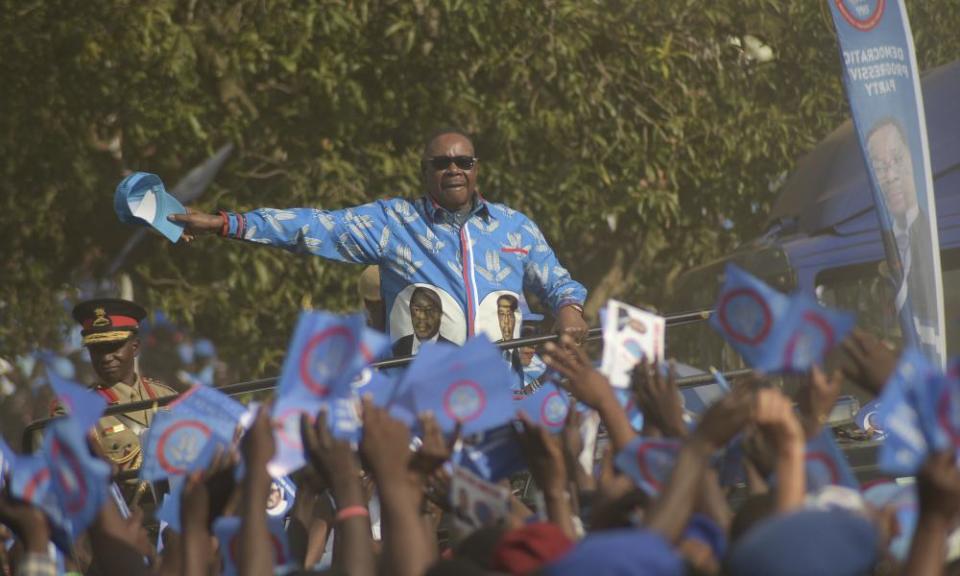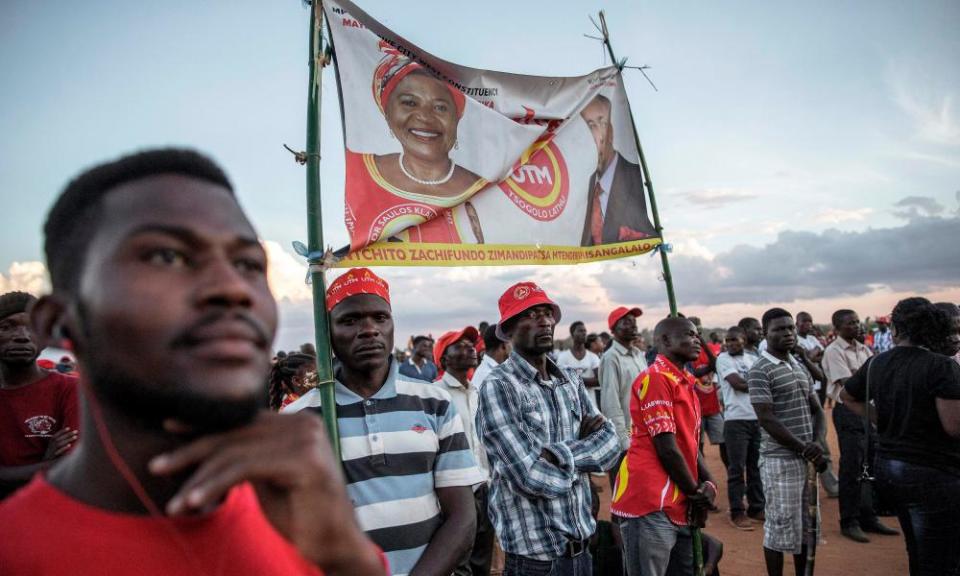Malawi goes to the polls: 'A lot is going wrong in this country'

Millions of Malawians are voting on Tuesday in the latest election contest in Africa to pit an elderly ruler against a younger challenger, part of what many observers see as a generational battle across the continent.
The incumbent, Peter Mutharika, a 78-year-old former law professor, is seeking a second five-year presidential term but faces a strong challenge from Saulos Chilima, 46. Chilima, a former telecoms executive, was Mutharika’s closest ally and vice-president before a split last year.
More than half of the 6.8 million registered voters are under 35, and this group could determine the outcome if they turn out to vote. Polls opened for 12 hours from 6am local time (0400 GMT).
Jaston Baula, 24, a student at Malawi Polytechnic, said he had not been interested in politics until Chilima announced his candidacy. “Chilima has got what takes to solve what’s wrong in this country,” he said. “We’ve realised that a lot of things are going wrong in this country, like rampant corruption and disregard for the young.”

The Malawian president, Peter Mutharika, arrives at a rally in Blantyre last week.Photograph: Thoko Chikondi/AP
A new generation of politicians is emerging across Africa, reflecting seismic social, economic and demographic shifts that are poised to change the lives of hundreds of millions of people.
In South Africa this month, Mmusi Maimane and Julius Malema, both 38, led opposition parties against the African National Congress, led by the incumbent president Cyril Ramaphosa, 66.
In Uganda, the singer and parliamentarian Bobi Wine, 37, has led protests against Yoweri Museveni, 74. In Zimbabwe, Emmerson Mnangagwa, 76, narrowly beat Nelson Chamisa, the 41-year-old leader of the Movement for Democratic Change, in an last July.
Omar al-Bashir, 75, was ousted from power in Sudan in April by a protest movement and the military. Young people played a key role. And in Algeria, demonstrations led by a new wave of activists forced the resignation of AbdelAziz Bouteflika, 82, last month after 20 years in power.
In Malawi, Atupele Muluzi, the 40-year-old son of the former president Bakili Muluzi, is also standing.
George Phiri, a political commentator, said: “Young people are very motivated to vote in this election because they feel that they are represented and that the election is theirs and that their dreams will be fulfilled once their desired candidates win the election.”

Supporters of Saulos Chilima listen to an address during the last presidential campaign Rally on 18 Mayin Lilongwe.Photograph: Gianluigi Guercia/AFP/Getty Images
Though Chilima is popular among young and urban dwellers, Mutharika can still rely on support from rural communities drawn in by promises of further investment in infrastructure and subsidies for agriculture.
“I know that people want to try something new, but the president has my vote because there is evidence of the development that he has been carrying out,” said Mark Mose, 38, a subsistence farmer in Chimombo.
Malawi’s roads and electricity supply have improved under Mutharika. Since 2014, inflation has fallen from 23% to below 9%. “I can assure you in the next five years we will get to the level of Singapore or Malaysia,” Mutharika told cheering supporters at his final rally on Saturday.
If more diverse in terms of age, candidates are less so in terms of gender. The former president Joyce Banda withdrew from the contest, leaving eight male contenders.
The president’s other main rival is the opposition leader, Lazarus Chakwera, who came second to Mutharika in 2014, losing by 450,000 votes.
Mutharika came to power vowing to tackle corruption but was caught up in a scandal when the country’s anti-graft agency implicated him in kickbacks over a multimillion-dollar contract to supply food to the police. He shrugged off accusations of a $200,000 bribe, saying he believed it was an “honest donation” to his party.
“Malawians have lost trust in this administration,” said Gift Trapence, of the Centre for the Development of People, a rights group. “We have had many cases of impunity in terms of not arresting corrupt people connected to the ruling party. Many people are very angry and want to cast a vote of no confidence in the government.”
Malawi won independence from Britain in 1964. It was ruled by Hastings Banda as a one-party state until the first multi-party elections in 1994.

 Yahoo News
Yahoo News 
